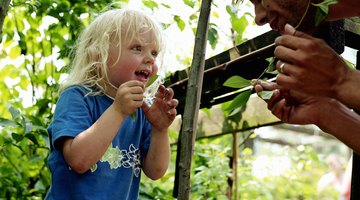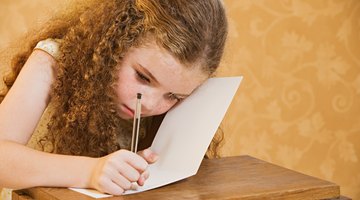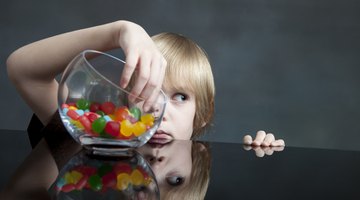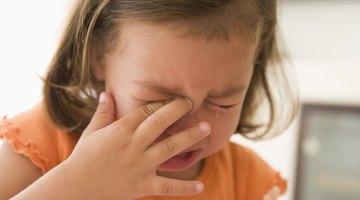Parallel & Reciprocal Play for Toddlers
Your toddler will spend most of her day playing, because play is the best way for her to explore and learn about the world. During the toddler years, she is developing language and motor skills, and she's also learning to interact with others while she plays. Just as your child grows and changes, the type of play she engages in will develop, too. She will go through stages of play that include both parallel and reciprocal play.
What is Parallel Play?
When you watch your toddler play, you may wonder why she isn't interacting with the other children present. For young toddlers, this is common and age-appropriate. According to the Encyclopedia of Children's Health, when children engage in parallel play they are playing side by side with similar toys but they are not interacting with each other. During this type of play, children are still watching and learning from one another. Your toddler may watch as another child pretends to feed her doll and then imitate that action with her own doll.
Encouraging Parallel Play
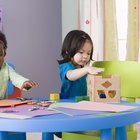
Parallel & Reciprocal Play for Toddlers
Learn More
Even though your toddler won't do much interacting with the other children, include her in playgroups or invite friends over to play. She will be learning about early friendships and the behaviors she will need when she plays with other children. When you are playing with your little one, provide simple and safe objects that interest her and follow her lead. Talk about what you see her doing as she plays, and encourage her to talk about it with you, such as, "Wow, you built that tower so tall.such as:
- Talk about what you see her doing as she plays,
- encourage her to talk about it with you
- such as
- "Wow
- you built that tower so tall
Do you think you can add more blocks?" or "You have a toy doggy. What does he say?"
Reciprocal Play
When your child is nearing 3 years old, you may see some reciprocal play begin. This type of play happens when children are playing with similar toys and have similar goals. Your child may trade toys with another or want to play with the same toys another child is using, though during this stage, there are no formal rules or organization. She and some friends may roll cars back and forth to each other or push their baby dolls in strollers next to each other. Reciprocal play will extend into the early preschool years, as well.
Learning Social Rules

How to Identify Your Child's Strengths & Weaknesses
Learn More
Two-year-old children are gaining a sense of independence and autonomy, according to Scholastic Teachers, so your toddler's need for control may sometimes outweigh her desire to share a toy with a friend. You can step in and coach her through these difficult emotions by saying things like, "He is sad that you took that car from him." Acknowledge her feelings and give her the language to express herself. Say to her, "You want a turn with the car, and it's hard to wait for something you want. You can use it when he's finished." She will learn social rules like sharing and taking turns that are necessary when she plays with other children.




